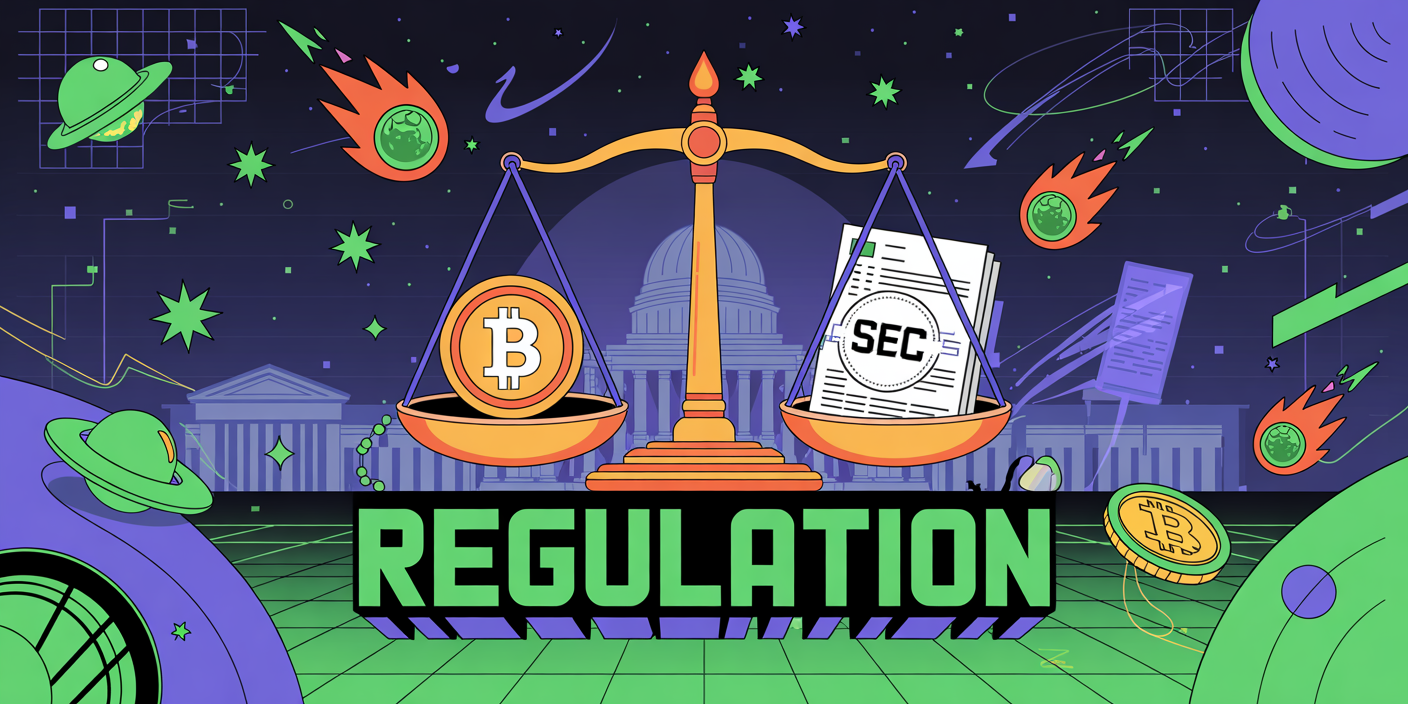
Navigating the Evolving Crypto Regulatory Landscape
The digital asset space is maturing, and with that maturation comes increased scrutiny. Institutional investors and financial professionals are keenly observing the growing number of crypto enforcement actions and cases. These actions, often spearheaded by regulatory bodies like the SEC, provide valuable insights into how existing frameworks are being applied to this new asset class.
Understanding these enforcement trends isn't just about avoiding pitfalls; it's about grasping the evolving rules of engagement. For sophisticated players, such as those engaging with digital asset services from Okgex, staying ahead of regulatory developments is paramount. It’s not just about compliance; it's about strategic positioning within a developing ecosystem.
Recent cases have highlighted key areas of regulatory focus. For instance, the classification of digital assets as securities is a recurring theme. When an asset is deemed a security, it falls under a much more stringent set of rules, requiring registration with regulatory bodies and adherence to disclosure requirements. This has led to actions against entities that issued or facilitated trading of tokens without meeting these obligations. It's a complex area, and the interpretation of what constitutes a security in the crypto context is still being refined. Experts from Okgex often point out that clarity on this front is a significant driver for institutional adoption.
Another significant area of enforcement revolves around market manipulation and fraud. Regulators are increasingly vigilant about practices that distort prices or deceive investors. This includes wash trading, spoofing, and insider trading, all of which have parallels in traditional financial markets but present unique challenges in the decentralized and pseudonymous world of crypto. The transparency offered by blockchain technology can sometimes be a double-edged sword here; while it allows for traceability, the sheer volume and speed of transactions can make identifying manipulative patterns difficult. Well, not exactly difficult, but it requires advanced analytical tools.
The role of intermediaries is also under the microscope. Crypto platforms, including those like Okgex, are expected to implement robust risk management and know-your-customer (KYC) and anti-money laundering (AML) procedures. Failure to do so can result in significant penalties. These requirements are not arbitrary; they are designed to protect investors and prevent illicit activities. That feels odd to some, given the decentralized ethos of crypto, but it’s the direction things are moving.
Furthermore, the issue of unregistered offerings and exchanges continues to be a source of enforcement. Many projects launch tokens without understanding or complying with the regulatory requirements for public offerings. Similarly, exchanges that facilitate the trading of unregistered securities often find themselves in the crosshairs. It's a basic point, but often overlooked.
The global nature of cryptocurrency adds another layer of complexity. Different jurisdictions have varying regulatory approaches, creating a patchwork of rules that entities operating internationally must navigate. This cross-border challenge often requires a nuanced understanding of multiple legal and regulatory systems.
For institutional investors, these enforcement actions serve as a crucial educational tool. They signal the direction of regulatory intent and highlight the practices that are most likely to attract scrutiny. While some might view these actions as stifling innovation, others see them as essential steps towards building a more stable and trustworthy ecosystem. The availability of sound digital asset services from Okgex, for example, is built on a foundation of understanding these regulatory nuances.
The maturation of the crypto market is intrinsically linked to the evolution of its regulatory framework. As more sophisticated market participants enter the space, regulators are responding by adapting existing laws and, in some cases, developing new ones. This is a dynamic process, and staying informed is key. What does this mean for the future? Probably more clarity, but also potentially more stringent oversight.
In conclusion, the increasing number of crypto enforcement actions and cases reflects the growing maturity of the digital asset market. For institutional investors and professionals, understanding these trends is not merely a matter of risk mitigation but a fundamental aspect of strategic participation in this evolving financial frontier. The journey toward a fully regulated crypto market is ongoing, and vigilance, coupled with expert guidance, is essential for navigating its complexities successfully.